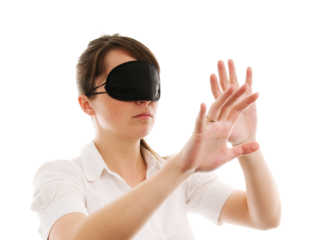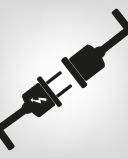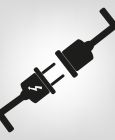Psychoanalysis
When Denial Turns Deadly: A Psychoanalytic Perspective
When the inability to face facts has fatal consequences.
Posted August 24, 2021 Reviewed by Ekua Hagan
Key points
- Psychological denial can be defined as the inability to face facts that are painful or uncomfortable.
- Psychological denial has become a crisis on its own, as it interferes with public health efforts to contain the spread of COVID-19.
- Therapists who persist in their skepticism toward Freudian denial are denying hard evidence and practicing denial themselves.

By Austin Ratner, M.D.
Edited by Linda Michaels, PsyD
Just a few days ago in Tennessee, where COVID-19 cases are surging and vaccination rates are among the lowest in the country, conservative radio personality and COVID-skeptic Phil Valentine died of COVID-19 after spending weeks on a ventilator. For Valentine’s brother Mark, it was a wake-up call to get vaccinated and speak out against misinformation and conspiracy theories. For all of us, Valentine’s death illustrates a very interesting problem:
The problem? Psychological denial.
It's a problem I've written about frequently, including a letter that a colleague and I published in The Lancet in October 2020 in which we asserted that denial itself has become a public health crisis. We suggested that psychoanalysts, who study and treat defense mechanisms like denial, should be involved in public health messaging to help combat the psychological phenomenon of denial, which has interfered with public health efforts to contain the COVID pandemic (as well as other issues, such as climate change). The letter sparked international attention and was covered by journalists around the world, from Discover magazine to Le Scienze in Italy to Swedish National Television.
Some background on denial
Sigmund Freud and his daughter Anna Freud first described denial as a refusal or inability to face facts that are painful or uncomfortable. According to the Freudian description, the sufferer of denial knows the truth deep down but unconsciously pushes it away, out of awareness, because it’s too painful to deal with. This pushing-away is a process psychoanalysts call repression.
When the unvaccinated Phil Valentine was first diagnosed with COVID-19, he posted a statement on Facebook claiming he'd be fine in a few days and touted the benefits of "some very effective alternatives to the vaccine." In these statements, he was clearly saying what he wanted to believe more than he was facing up to known facts about the dangers of the illness for people in his age group.
That is denial.
It requires clinical experience and skill to help someone who is in denial face facts, and that is precisely what psychoanalysts are trained to do. That’s why I suggested in Lancet that psychoanalysts should be involved with the outreach campaigns to get people to mask up and get vaccinated.
Part of the reason this hasn’t happened yet may be a curious feature of denial: it covers its own tracks. It is a form of blindness that is also invisible because we don’t want to accept the fact of denial itself. Sociologist Eviatar Zerubavel calls this meta-denial “denying the denial.” Nobel-prize-winning psychologist Daniel Kahneman has described the problem as one of being “blind to our blindness,” a phrase that Education Secretary Miguel Cardona recently used in criticizing those governors who resist public health recommendations like mask mandates in schools.
Not all therapists accept that people can be blind to distasteful facts. Some dispute the notion of psychological blindness, repression, and unconscious ideation altogether. That’s remarkable, considering how much supporting hard evidence has been published in our most visible and trusted scientific publications. Therapists who persist in their skepticism toward Freudian denial are denying hard evidence and facts and thus practicing denial themselves; perhaps the concepts of denial and repression make those therapists uncomfortable in some ways, or perhaps they differ from how those therapists were trained in graduate school. Regardless, such a mindset stands in the way of a psychoanalytic approach to solving serious public health problems like mass-denial of COVID and climate science.
One such denial skeptic responded to my Lancet letter with a different idea of what denial is. He described denial as a form of cognitive dissonance—i.e., “dismissing information that doesn’t fit an existing belief system.” The Phil Valentine example suggests he’s partly right. Valentine rejected the facts about COVID in the context of larger political and ideological convictions that encouraged his skepticism. But it’s also fair to ask: Where did those false convictions come from in the first place? Didn’t they arise and spread because people were told what they wanted to hear?
It’s critical right now that we all try to look and listen to the hard truth, instead of to what we want to hear. When we fail to do that in the face of real dangers like COVID-19 that take no prisoners, we can risk everything, like Phil Valentine did. It’s time to wake up.
About the author
Austin Ratner, M.D. is a writer in Brooklyn, NY. He is the author of The Psychoanalyst's Aversion to Proof as well as several novels. He received his M.D. from the Johns Hopkins School of Medicine and is a member of the American Psychoanalytic Association.


